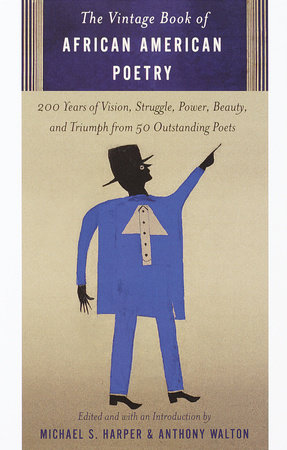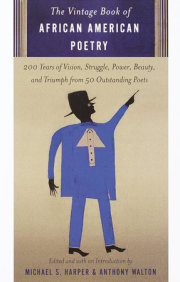"The Slave's Complaint"
by George Moses Horton (1797?-1883?)Am I sadly cast aside,
On misfortune's rugged tide?
Will the world my pains deride
Forever?
Must I dwell in Slavery's night,
And all pleasure take its flight,
Far beyond my feeble sight,
Forever?
Worst of all, must hope grow dim,
And withhold her cheering beam?
Rather let me sleep and dream
Forever!
Something still my heart surveys,
Groping through this dreary maze;
Is it Hope?--they burn and blaze
Forever!
Leave me not a wretch confined,
Altogether lame and blind--
Unto gross despair consigned,
Forever!
Heaven! in whom can I confide?
Canst thou not for all provide?
Condescend to be my guide
Forever:
And when this transient life shall end,
Oh, may some kind, eternal friend
Bid me from servitude ascend,
Forever!
"Learning to Read"
by Frances E.W. Harper (1825-1911)Very soon the Yankee teachers
Came down and set up school;
But, oh! how the Rebs did hate it,--
It was agin' their rule.
Our masters always tried to hide
Book learning from our eyes;
Knowledge didn't agree with slavery--
'Twould make us all too wise.
But some of us would try to steal
A little from the book,
And put the words together,
And learn by hook or crook.
I remember Uncle Caldwell,
Who took pot-liquor fat
And greased the pages of his book,
And hid it in his hat.
And had his master ever seen
The leaves upon his head,
He'd have thought them greasy papers,
But nothing to be read.
And there was Mr. Turner's Ben,
Who heard the children spell,
And picked the words right up by heart,
And learned to read 'em well.
Well, the Northern folks kept sending
The Yankee teachers down;
And they stood right up and helped us,
Though Rebs did sneer and frown.
And, I longed to read my Bible,
For precious words it said;
But when I begun to learn it,
Folks just shook their heads,
And said there is no use trying,
Oh! Chloe, you're too late;
But as I was rising sixty,
I had no time to wait.
So I got a pair of glasses,
And straight to work I went,
And never stopped till I could read
The hymns and Testament.
Then I got a little cabin--
A place to call my own--
And I felt as independent
As the queen upon her throne.
George Moses Horton (1797?-1883?), author of "The Slave's Complaint"
George Moses Horton, at his best, was a poet of daring intensity and vast ambition. Born about 1797 in Northhampton County, North Carolina, he was a slave for most of his life, until Emancipation in 1865. Horton, who taught himself to read, found his way into the hearts of many unwitting belles of North Carolina through his selling of personalized love lyrics to students at nearby Chapel Hill. He furthered his education by borrowing what books he could from these students.
Many of Horton's best poems concern the topic of slavery. His "On Hearing of the Intention of a Gentleman to Purchase the Poet's Freedom," "On Liberty and Slavery," and "The Slave's Complaint" examine the slave's position in clean and learned verses. "George Moses Horton, Myself" captures in its paced, cool contemplativeness and terse lyrics some of the unresolved strivings of the poet.
Horton had hoped to purchase his freedom with the sales of his first book of poems,
The Hope of Liberty (published in Raleigh in 1829), the first full volume of verse published by an African American since Phillis Wheatley's some thirty years before. But he fell short of this goal, living instead through three generations of Horton ownership.
The Hope of Liberty was reissued in 1837 in Philadelphia under the title
Poems by a Slave. Horton's second volume,
Naked Genius, came to print in 1865, the year in which he escaped to the Northern infantry then occupying Raleigh. Little was heard of Horton after this point, and it is generally assumed that he lived the remainder of his life in Philadelphia, where he died in about 1883.
Frances E. W. Harper (1825-1911), author of "Learning to Read"
Frances Ellen Watkins Harper was born free in Baltimore in 1825. By the time of her death in 1911, she had become almost an institution in both literary and political circles. Harper used what seems to have been a tireless energy to publish countless poems, articles, essays, and novels examining both racial and gender division among Americans. Often thought of as the inaugural "protest poet," she presented her themes in graceful rhetoric, skillful metaphor, allusion, and allegory, embracing the demands of her craft along with the exigencies of the social moment.
Harper worked ably and extensively in her lifetime with the Underground Railroad, the Maine Anti-Slavery Society, the Women's Christian Temperance movement, the African Methodist Episcopal Church, the American Equal Rights Association, the Universal Peace Union, the National Council of Women, and the National Association of Colored Women. Her
Poems on Miscellaneous Subjects was published in 1854, with a preface by William Lloyd Garrison. This volume proved so popular that it went through over twenty reprints in the author's lifetime.
Harper was also the author of
Moses: A Story of the Nile, published in 1869,
Poems in 1871, and
Sketches of Southern Life in 1873.
Iola Leroy, one of the more widely read novels written by an African American of the nineteenth century, was published in 1893.
Copyright © 2000 by Michael S. Harper and Anthony Walton, editors. All rights reserved. No part of this excerpt may be reproduced or reprinted without permission in writing from the publisher.








